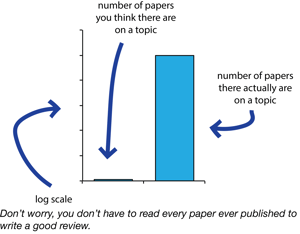
Pricing: Prices vary, according to the chosen quality level and deadline. The minimum price is for standard quality with a 10-day deadline ($17.43), while maximum price is for platinum quality and 3-hour deadline ($46.21).
This website is focused on providing high quality custom writing help to international and MBA students. Ordering papers from this legit website, clients can be certain that they buy original research material fully satisfying their needs and meeting their requirements. The company guarantees confidentiality and fair refund if necessary. Constantly upgrading their skills and features, this company provides writing services student dream of.
“I received the paper quit some time ago, just been waiting for a feedback from my instructor. Guess what? I passed =) I would definitely recommend this service to anyone.” – Gabriel B.
SuperBPaper is the best paper writing servce. I always worry about getting scammed or tricked into buying papers that get outsourced overseas, which is why I went with these guys. I mean, they’re website is… over the top pro-America, to say the least. When I got my paper back, I could tell that the writer was actually from the USA.
📝 What Can Paper Writing Services Do?

“This was my first time using an online service for writing my term paper. You have exceeded my expectations.” – Megan R.
Pricing: Prices are among the lowest in the industry, starting from $9 per page.
Pricing: The prices depend upon study level and deadline, ranging from $9 (a high school essay with a 14 day deadline) to $88 (admission help with a 6 hour deadline) per page.
Experienced writers from WiseEssays are ready to share their wisdom, knowledge and research findings with students. Their years of experience in this field allow writers finding incredibly interesting facts and giving students food for thought. The writing standards at this website are high, and students can be certain that professors will like their paper based on research from this site. Importantly, original research materials are always delivered before the deadline.
Facing this task for the first time can really get confusing and can leave you being unsure where to begin. To create a top-notch article review, start with a few preparatory steps. Here are the two main stages to get you started:
That is a type of professional paper writing which demands a high level of in-depth analysis and a well-structured presentation of arguments. It is a critical, constructive evaluation of literature in a particular field through summary, classification, analysis, and comparison.
Why have we devoted an entire section of this article to talk about an article review sample, you may wonder? Not all of you may recognize it, but in fact, looking through several solid examples of review articles is actually an essential step for your writing process, and we will tell you why.
Do you need some help with your article review? Count on the support of our essay service.
Formatting an Article Review
![]()
First of all, you need to write a title that reflects the main focus of your work. Respectively, the title can be either interrogative, descriptive, or declarative.
- If you are wondering how to start an article review, begin with an introduction that mentions the article and your thesis for the review.
- Follow up with a summary of the main points of the article.
- Highlight the positive aspects and facts presented in the publication.
- Critique the publication through identifying gaps, contradictions, disparities in the text, and unanswered questions.
- To get you introduced to the key works of experts in your field.
- To help you identify the key people engaged in a particular field of science.
- To help you define what significant discoveries and advances were made in your field.
- To help you unveil the major gaps within the existing knowledge of your field—which contributes to finding fresh solutions.
- To help you find solid references and arguments for your own review.
- To help you generate some ideas about any further field of research.
- To help you gain a better understanding of the area and become an expert in this specific field.
- To get a clear idea of how to write a good review.

1. Haery, Leila, Ryan C. Thompson, and Thomas D. Gilmore. "Histone acetyltransferases and histone deacetylases in B-and T-cell development, physiology and malignancy." Genes & cancer 6.5-6 (2015): 184. PubMed PMID: 26124919. PubMed Central PMCID: PMC4482241.
I started by reading other reviews because, as I mentioned, I wasn’t an expert in the field. To find reviews, I just searched online and found ones that I thought “looked good” by no definitive criteria. I read these articles to get a sense of the themes in the field and to learn what people cared about. I also used reviews to get a list of research papers that I needed to read. Once I had an idea of the themes in the field, I searched for recent research papers on these particular themes, for seminal papers on these themes, and also for articles from the active/well-known researchers in the field. I made sure to find information from genome-wide studies, as well as results from smaller and more specific studies. I also did not limit myself to the well-cited or popular papers, but looked for papers from a wide range of authors.
It doesn’t have to be long and it doesn’t have to be revolutionary, but you could include a few comments on where you think the field is going or what areas are worth exploring.
I wrote a review article on histone modifers in B and T cells with my adviser when I was a graduate student. Naturally, the first thing I did was google “how to write a scientific review.” The second thing I did was stare in horror at the limited number of hits. So, here, I will share my process with you. But before I do that, let me say that I was by no means an expert on this topic when I set out to write the review. That’s just to say that you don’t have to be one either.
Get feedback

When I first started I thought I would read a bunch of papers and then feel ready to write. What actually happened was that each paper taught me a few things and also highlighted a few dozen things that I didn’t know about. Instead of reading a paper and getting my bearings, I would read a paper, panic, and then download a bunch of other papers. In mathematics, I think this is represented by factorials. In environmental science and ecology, this can be represented by the tip of the iceberg. For writers, this is probably “a normal day.” The way I broke this cycle was to just start writing.
If you’re like me, your rough draft is really rough and so editing is going to be a long process. I was lucky in that my adviser always played an active role in writing and editing, so I always had someone to send drafts back and forth with. That being said, we probably exchanged dozens of drafts of the manuscript. This is the time to transform the document into something cohesive-- change the sentences, make it flow, and start telling the story. Like any editing process, you will need time away from the article to be able to keep editing it effectively. You will also begin to hate the article. This is normal and it means you’re on the right track!
After you’re done editing, send it to some actual experts in the field for their feedback on the scope and the content.
Once you start reading, there will be a temptation to include every piece of information that was ever published. Obviously this isn’t possible. So, define your scope from the onset. Perhaps you, a colleague, or your adviser was invited to write on a particular topic. Alternatively, maybe you’re researching a topic for which no relevant or recent review exists. Once you pick a topic, try to be specific about exactly what aspect of the field you plan to review. If it’s a well-researched field, you may need to get specific to make sure your article doesn’t turn into a textbook.
Much like all other reviews, a journal article review evaluates strengths and weaknesses of a publication. A qualified paper writer must provide the reader with an analysis and interpretation that demonstrates the article’s value.
Looking through relevant article review examples can be beneficial for you in the following ways:
- Web: Author [last name], A.A [first and middle initial]. (Year, Month Date of Publication). Title. Retrieved from
- Journal: Author [last name], A.A [first and middle initial]. (Publication Year). Publication Title. Periodical Title, Volume(Issue), pp.-pp.
- Newspaper: Author [last name], A.A [first and middle initial]. (Year, Month Date of Publication). Publication Title. Magazine Title, pp. xx-xx.
Next, identify whether or not there is any unnecessary data in the paper and remove it. Lastly, check the points you discussed in your work
Journal Article Review
![]()
Do you need some help with your article review? Count on the support of our essay service.
After your citation, you need to include the identification of your reviewed article:
If you write a scientific review, you have to use database searches to portray the research. Your primary goal is to summarize everything and present a clear understanding of the topic you’ve been working on.

It is challenging to achieve a successful review on all these fronts. A solution can be to involve a set of complementary coauthors: some people are excellent at mapping what has been achieved, some others are very good at identifying dark clouds on the horizon, and some have instead a knack at predicting where solutions are going to come from. If your journal club has exactly this sort of team, then you should definitely write a review of the literature! In addition to critical thinking, a literature review needs consistency, for example in the choice of passive vs. active voice and present vs. past tense.
After having chosen your topic and audience, start by checking the literature and downloading relevant papers. Five pieces of advice here:
When starting from scratch, reviewing the literature can require a titanic amount of work. That is why researchers who have spent their career working on a certain research issue are in a perfect position to review that literature. Some graduate schools are now offering courses in reviewing the literature, given that most research students start their project by producing an overview of what has already been done on their research issue [6]. However, it is likely that most scientists have not thought in detail about how to approach and carry out a literature review.
When searching the literature for pertinent papers and reviews, the usual rules apply:
Rule 9: Include Your Own Relevant Research, but Be Objective
define early in the process some criteria for exclusion of irrelevant papers (these criteria can then be described in the review to help define its scope), and
Whether your plan is to write a mini- or a full review, it is good advice to keep it focused 16,17. Including material just for the sake of it can easily lead to reviews that are trying to do too many things at once. The need to keep a review focused can be problematic for interdisciplinary reviews, where the aim is to bridge the gap between fields [18]. If you are writing a review on, for example, how epidemiological approaches are used in modelling the spread of ideas, you may be inclined to include material from both parent fields, epidemiology and the study of cultural diffusion. This may be necessary to some extent, but in this case a focused review would only deal in detail with those studies at the interface between epidemiology and the spread of ideas.
Given the progressive acceleration in the publication of scientific papers, today's reviews of the literature need awareness not just of the overall direction and achievements of a field of inquiry, but also of the latest studies, so as not to become out-of-date before they have been published. Ideally, a literature review should not identify as a major research gap an issue that has just been addressed in a series of papers in press (the same applies, of course, to older, overlooked studies (“sleeping beauties” [26])). This implies that literature reviewers would do well to keep an eye on electronic lists of papers in press, given that it can take months before these appear in scientific databases. Some reviews declare that they have scanned the literature up to a certain point in time, but given that peer review can be a rather lengthy process, a full search for newly appeared literature at the revision stage may be worthwhile. Assessing the contribution of papers that have just appeared is particularly challenging, because there is little perspective with which to gauge their significance and impact on further research and society.
If you read the papers first, and only afterwards start writing the review, you will need a very good memory to remember who wrote what, and what your impressions and associations were while reading each single paper. My advice is, while reading, to start writing down interesting pieces of information, insights about how to organize the review, and thoughts on what to write. This way, by the time you have read the literature you selected, you will already have a rough draft of the review.

